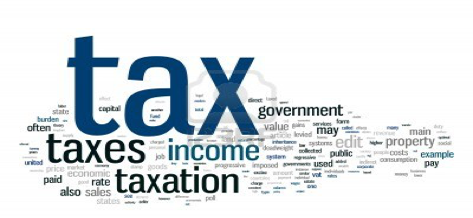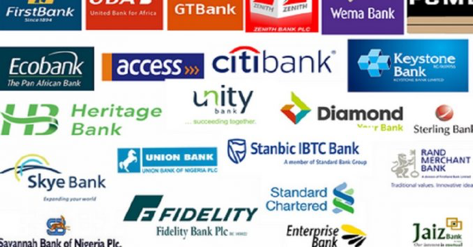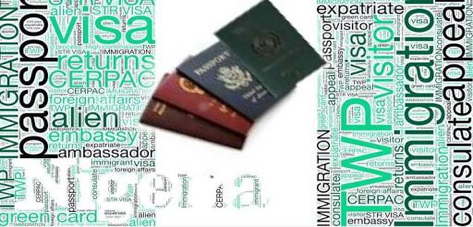With an increased desire for foreign participation in Nigeria, the Nigerian government has been making frantic efforts in ensuring ease of doing business by creating a framework that would aid direct and portfolio investment as well as repatriation of capital.
It is imperative to outline the basic steps foreign corporate bodies need to take to run their businesses within Nigeria. It is important to note that companies not incorporated in Nigeria are regarded as non-resident or foreign companies.
Before a deeper consideration of the main issues, there are certain principles you (the reader) may need to know about the legal position of doing business in Nigeria.
The first is that a foreigner is free to do business within Nigeria, alone or in partnership with any other person[1], so far as the business is not on the “Negative List”[2].
Secondly, there are Contracts entered between foreign companies and Nigerians without these foreign companies coming into Nigeria to do business, for instance, a Chinese man supplying clothing materials to a Nigerian retailer in order for the Nigerian to sell and remit certain funds to the Chinese. These contracts can still be enforced by the foreigner in Nigerian Courts. The Nigerian cannot claim that the foreign company has to register first before they can do business, as a defence for not paying the foreign Company what they owe it[3].
Thus, foreign companies can do business with Nigerians and can still enforce these Contracts in Nigerian Courts even when they are not fully incorporated or exempted by the regulatory body[4].
NATURE OF BUSINESS INVESTMENTS PERMISSIBLE WITHIN NIGERIA
There are 3 main categories of foreign companies doing business in Nigeria.

| Foreigner/Foreign Company |
Those exempted from registration – Sec. 54 CAMA. These are those that are not here to do business but just to execute certain projects |
| Direct investors who invest in the Nigerian market. They are bringing their company to carry on business within Nigeria. |
| Portfolio investors who do not directly participate. They do not bring their business to Nigeria, they rather invest in the equity market (eg, those that buy/subscribe to govt. Bonds). |
The track race to freely do business within Nigeria is filled with a few hurdles that must be scaled.
- Incorporation or Exemption.
- Registration with the Nigerian Investment Promotion Commission.
- Importation of money/capital into Nigeria.
- Immigration requirements for the management and staff, especially foreign staff members.
- Commencement of business.
- Possible incentives and guarantees from the government.
- Filing of annual returns/annual reports at the end of every fiscal year.
INCORPORATION OR EXEMPTION
Basically, there are 3 options involved when a foreign company desires to set up a business in Nigeria. It is either they are portfolio investors and do not desire to establish any physical business presence in Nigeria, or they desire to establish a physical business presence in Nigeria, in which case, they will have to undergo a formal incorporation as a Nigerian Company at the Corporate Affairs Commission, or they fall under the category of companies that are entitled to apply to the presidency for Exemption from incorporation under the relevant laws.
1. Incorporation
As a general requirement, a foreign company must first register as a separate entity within Nigeria before embarking on any kind of business operation in Nigeria[5].
Just like Nigerian Companies, until incorporated, it is illegal to carry on any business in Nigeria. Foreign companies are not even allowed to have a place of business before registration except an office where processes or receipts of documents will be delivered thereto as a prelude to incorporation.
This is seen as the bottom line, where all other options are inapplicable to the nature of business the foreign company desires to undertake, the Company will need to undergo the formal incorporation process at the Corporate Affairs Commission.
Any transaction the foreign company undertakes before/without incorporation is not only void but because a punishment is prescribed, the transaction is illegal, it is basically a criminal offence.
2. Exemption
There are certain Foreign Companies that the Law permits to carry on business activities in Nigeria without the need to undertake the formal incorporation process. These companies are of special status and if they fit the criteria laid down by the law[6], all they need do is apply to the Presidency and they will be granted exemption from incorporation.
An application for exemption from registration as a Nigerian company is addressed to the President, through the Secretary to the Government of the Federation. Upon consideration of the application in line with the requirements of the law, the president may grant exemption to the applicant company upon certain conditions.
It is important to note that this category of companies are usually granted exemption for the period necessary for the execution of whatever project they have undertaken and upon expiration of the grant of exemption, such companies would need to formally incorporate in order to carry on further business within Nigeria.
3. Portfolio Investment
Portfolio investment is a situation where certain persons non-resident in Nigeria, as well as companies not domiciled within the country, engage in the business of dealing in stock, bonds, mutual funds, real estate investment trusts and other financial assets without establishing any physical business presence in Nigeria with the expectation that it will earn a return or grow in value over time, or both[7]. For example, a foreign company can acquire the stock of a Nigerian company and trade with it in the Nigerian stock markets, there have also been instances of foreign corporations subscribing to Dollarbonds and Eurobonds issued by the Federal government and financial institutions[8].
Thus whenever a person, who is not a Nigerian, decides to own and dispose of financial assets derived within Nigeria, such person is referred to as a ‘foreign portfolio investor’
It is important to note that, though a foreign company, desirous of carrying on portfolio investment may not need to undergo formal incorporation, such company must register with the Nigerian Investment Promotion Commission and also meet their tax obligations.
Taxation of Foreign Portfolio Investors

Foreign portfolio investors are generally subject to the tax regime of Nigeria albeit their physical absence. The absence of physical business presence does not exempt businesses from tax liability.
The FIRS has taken the initiative to facilitate the taxation of non-resident investors by establishing the Non-Resident Persons’ Tax Office (NRPTO) in October, 2019[9].
The jurisprudential basis of taxation in Nigeria is either the domicile or the source of income of the tax payer.
Ordinarily, taxation in Nigeria ought to be directed at those resident or domiciled within the territory[10], this is because the idea of municipal tax is limited to the individual countries, however, with the dawn of globalization, a new reality was created, where persons and companies not domiciled within Nigeria could do business in Nigeria and make profit without being recognized as taxable persons. This necessitated the need for our tax regime to incorporate the ‘income derivation’ as a basis for taxation. The ‘Tax man’ (i.e, the tax authority) is not concerned with the status of incorporation but the source of income or profit.
As such, foreign portfolio investors are chargeable for personal as well as companies income taxes on any and all forms of ‘profits accruing in, derived from, brought into or received in Nigeria’[11], this includes the taxation on dividends shared by a company to its non-resident shareholders[12].
Thus, if a portfolio investor acquires shares in a Nigerian public company, trades with the shares in the Nigerian Stock Exchange (NSE) and makes profit from said transaction, such profit will be regarded as having been derived from Nigeria and as such would be subject to taxation.
Furthermore, the goods delivered and services rendered by non-resident companies are not exempted from import duties or value added tax (VAT).

For instance, the new Value Added Tax regime[13] describes taxable goods and services to include ‘goods imported into Nigeria for use by a person’ and ‘services rendered to a person in Nigeria regardless of whether services are rendered within or outside Nigeria’.
Therefore, it is evident that the tax regime is all encompassing and is not influenced by the incorporation status of the company.
REGISTRATION WITH THE NIGERIAN INVESTMENT PROMOTION COMMISSION (NIPC)
The NIPC is the body established with the mandate of monitoring all forms of investments in Nigeria, this means that the NIPC is responsible for regulating the activities of all foreign businesses within Nigeria.
Thus, regardless of the category the foreign company falls under (either incorporation or exemption or portfolio investor), such company must register with, and be regulated by the NIPC.

Failure to register with the NIPC will disqualify a foreign company from enjoying the various incentives established in various sectors of the economy as would be outlined subsequently.
The NIPC is in charge of offering certain licenses, permits and incentives.
It is the ‘spinal cord’ of the entire body of regulators affecting foreign investment in Nigeria.
To register with the NIPC, an application it to be made to the Executive Secretary, such application will be accompanied by several documents establishing the legal status of the company as well as evidence of payment of prescribed fees[14].
IMPORTATION OF CAPITAL
Businesses must be run with money, in whatever form. The process of transferring that money from the foreign country into Nigeria is called ‘Capital Importation’. The foreign company will be required to register with the Central Bank of Nigeria and obtain a Certificate of Capital Importation (CCI) which will allow the company to bring in foreign capital to Nigeria.

Obtaining CCI will be beneficial to the company in many respects to wit:
- It entitles the foreign investor to open a ‘Foreign Currency Domiciliary Account’ with any authorized dealer (mainly Deposit Money Banks).
- It allows as expatriate to open a ‘Special Non-Resident Naira Account’ which will be tax free.
- It enables the foreigner to buy shares in Nigerian companies out of the naira account.
- It entitles the foreigner to repatriate the capital, dividend and incomes at the autonomous market rates less taxes.
IMMIGRATION REQUIREMENTS

1. Expatriate Quota (EQ)
Any company that desires to employ a foreigner must have an expatriate quota. It is an offence to employ a foreigner to work in the company without a quota for him.
It is the responsibility of the company, not the individual foreign workers to obtain the EQ. The Company gets the quota, permitting it to employ foreigners[15].
There are 2 types of EQ granted, the ‘Temporary’ grant is for all staff of the company who are foreigners while the ‘Permanent Until Reviewed’ is granted to high level management, such as members of the board of directors.
2. Entry Visa[16]
Tourist and business entry visas must be issued or rejected with reason by the consular office of Nigerian embassies and high commissions within 48 hours of receipt of a valid application.
It is expedient to note that this includes ‘Visa on Arrival’[17] which is an innovation of the Nigerian Government to make Visas available, at the point of entry into Nigeria, to foreigners, especially foreign investors who are unable to acquire one in their home country mostly due to the absence of a Nigerian embassy or High Commission or due to the urgency of the travel.
3. Subject-to-Regularization Visa
Upon receiving an EQ, the expatriates of the applicant company will be required to obtain a “Subject To Regularization” (“STR”) visa from the Nigerian Embassy in their home countries before coming into Nigeria.
This enables them to lawfully come in, take up employment and reside pending when a CERPAC card is issued.
4. Combined Expatriate Residence Permit and Alien Card (“CERPAC”)/Electronic Passengers Registration System (“E-PARS”)
A foreign national who has imported an annual minimum threshold of capital over a period of time may be issued a residence permit, provided that the investment is not withdrawn[18]. This means the foreigner has permission to live in Nigeria as long as he/she wants.
Also, upon securing an EQ, each expatriate employee must obtain a CERPAC. A CERPAC permits the employee to reside and work in Nigeria.
An application for CERPAC is made on a CERPAC form addressed to the Minister of Interior. The CERPAC is valid for a period of 2 years[19].
Electronic passenger registration system is an electronic registration platform created by the Nigerian Immigration Service for the registration of all holders of CERPAC.
5. Business Permit
This is a permit granted by the Minister of Internal Affairs that enables a foreigner carry on a fully owned business within Nigeria. It applies only to 100% foreign owned businesses in Nigeria[20].
Furthermore, it is generic in nature and does not obviate the need to obtain permits from sector specific regulators.
It is a permanent grant for the local operation of a business with expatriate investment either as a branch or subsidiary of a foreign company or otherwise.
6. Operating Licenses
Companies manufacturing and processing food, drugs and allied products must obtain certification for its products and factory sites from relevant regulators such as NAFDAC, Pharmacists Council of Nigeria, etc.
GUARANTEES AND INCENTIVES
1. Unconditional Transfer of Capital[21]
Foreign companies are guaranteed that they will be allowed to take their monies in and out of Nigeria, however, it must be with an authorised dealer (mostly Deposit Money Banks). Whether or not it is profit, loan servicing funds or proceeds of sale/liquidation. Foreign companies must be given free access to take it back and forth.

2. Protection against Nationalization and Expropriation[22]
The Federal Government guarantees, through its laws, that it will not nationalize (compulsorily replace all foreign management and staff with Nigerians) or expropriate (take over foreign companies for public use/purpose).
The Only exception is when there’s an overwhelming ‘public purpose’ or ‘national interest’. In this case, the Company cannot go to Court to stop it, rather can seek for adequate compensation.
3. Protection against Double Taxation[23]
If a Company is liable to pay a certain nature of tax and proves that it has paid that nature of tax or its equivalent in its country of origin, which is either a commonwealth or another country that has double taxation treaty with Nigeria[24], then such a company will be exempt from paying that particular nature of tax within Nigeria.
INCENTIVES
The thing about incentives is that they are so many and they cut across all sectors within Nigeria.
Incentives are an obvious way of attracting investors to the Nigerian market, almost all sectors of the economic framework has developed certain incentives for foreign companies to facilitate the stabilization of direct investment.
As such, we have decided to outline a few prevalent examples.
1. Pioneer Status[25]
Once any Company is carrying on a Business in Nigeria and that business has been identified and approved as falling within the list of businesses that are pioneer in nature[26], it will be entitled to this relief. Pioneer status is usually for Companies bringing in something new, whether it is a product or a module. They are granted Income Tax Relief (meaning they are exempt from paying tax on any income/profit made) for their first 3 years in Nigeria. After which, if the business is deemed to still require more time to stabilize, the tax exemption may be extended for another 2 years[27].
Also, when these companies declare a dividend at the end of the years of Income Tax Relief, and they share that dividend to shareholders (even if a shareholder is Nigerian), that dividend in the account of the shareholder is exempted from any tax[28].
Another advantage of the pioneer status is that any year these companies declare a loss, it shall not count for the purpose of this Tax Relief.
This is because the Tax relief per year is relief from paying tax on profit made that year, if they made no profit that year, then nothing can be taxed, if nothing can be taxed then they enjoy no Tax Relief for that year.
So if a foreign Company is named a Pioneer in 2016, for instance, it is exempt from paying tax on the profit of 2016, he is also exempted for 2017, but if in 2018 (3rd year) they declare no profit then the Relief cannot apply and must be carried over to whatever profit is made in 2019.
2. Duty Draw Back
This is when the Company is given a refund for the earlier import duty they paid on equipment they imported when it is discovered that those equipment were used as raw materials for the manufacturing of goods of goods for effective exportation.
3. Tax Credit on income derived outside Nigeria
Where a foreign company derives income within another country it brings the income into Nigeria, it is exempt from paying Income Tax on that income[29].
4. Interest on loans granted to persons engaged in manufacturing or agriculture
Where a foreign company or financial institution issues a loan to Nigerians within Nigeria for the purpose of agricultural trade or manufacturing, any interest gotten on that loan is exempt from tax[30].
5. Companies engaged in Agriculture, Manufacturing and wholly Export trade are required to pay 20% instead of the normal 30% as annual Company Income Tax for the first 5 years[31].
6. Unrestricted Capital Allowance
It is for those in the Agriculture sector, engaging in wholly agricultural activities. Capital allowance is the process of reducing the taxable income by subtracting what was expended on special equipment like vans, plants, machinery, etc.
7. Companies fully venturing into the Solid Minerals Sector are entitled to exemption from Tax for the first 3 years of operation.
8. Employment Tax Relief
Companies with minimum of 5 new employees who are retained for at least 2 years get an exemption from Companies Income Tax of 5% of its assessable profits.
9. Gains accruable from mergers and acquisitions are not to be taxed[32].
GENERAL GOODS AND SERVICES EXEMPT FROM VALUE ADDED TAX
- Medical products;
- Books;
- Baby Products;
- Basic food items;
- Locally produced fertilizer;
- Imported plants band Machinery;
- Medical Services;
- Export services; etc.
THE ONE STOP INVESTMENT CENTER.
This is an innovation from NIPC saving foreign companies the stress of going to several offices for permits and licenses. They created a hall where all the relevant agencies are to use a fraction of to conduct business.
Agencies Operating at the One-Stop Investment Centre
- Nigerian Investment Promotion Commission.
- Corporate Affairs Commission.
- Nigerian Immigration Service.
- Nigerian Custom Service.
- Securities and Exchange Commission.
- Federal Inland Revenue Service.
- National Office for Technology Acquisition and Promotion.
- Standard Organization of Nigeria.
- Federal Ministry of Solid Mineral and Developments.
- National Bureau of Statistics.
- Central Bank of Nigeria.
CONCLUSION
We have been able to outline the result of the consistent dedication of the Nigerian Government to ease the burden of foreigners in doing business in Nigeria. A basic understanding of the topic will equip an investor on ‘what to expect’ when contemplating starting up a business in Nigeria.
EDITORIAL TEAM
1. Anthony Madukwe
(Senior Partner)
anthony.madukwe@nakudulawpartners.com
2. Emmanuel Omole
(Senior Associate)
emmanuel.omole@nakudulawpartners.com
3. Isimeme Andrew
(Associate)
Isimeme.andrew@nakudulawpartners.com
OUR OFFICES
1. 34, QUEEN ELIZABETH CRESCENT, ASOKORO, ABUJA.
2. NO. 13D, ISA DUTSE STREET, OFF UMARU BABURA ROAD, BOMPAI GRA, KANO, KANO STATE.
www.nakudulawpartners.com
DISCLAIMER: This article is carefully drafted with the sole intention of providing general information on the subject matter. It does not in any way create a client/attorney relationship between readers and our Firm. We are always readily available to provide top-notch legal services.
[1] Section 20(4) of the Companies and Allied Matters Act, Cap C20, LFN, 2004 (CAMA) and Section 17 of the Nigerian Investment Promotion Commission Act, LFN, 2004 (NIPCA).
[2] The Negative list includes the following;
- Production of military and paramilitary wears including those of the police, customs, immigration and prison.
- Production of arms and ammunitions.
- Production of narcotics.
- Such other items as the federal executive council may determine. See Sections 18 & 32 of the NIPCA.
[3] Section 60 of the CAMA.
[4] RITZ PUMENFABRIK GMBH & CO KG V TECHNO CONTINENTAL ENGINEERS NIG. LTD (1999) 4 NWLR (PT.598) 298.
[5] Section 54 of the CAMA.
[6] Section 56 of the CAMA outlined certain types of companies to qualify for exemption, they include;
- Foreign companies invited to Nigeria by Federal Government to execute any specified or loan project;
- Foreign companies which are in Nigeria for the execution of specific individual loan project on behalf of a Donor Country or International Organisation;
- Foreign government-owned companies engaged solely in export promotion activities; and
- Engineering consultants and technical experts engaged on any individual specialist project under contract with any of the government in the federation or their agencies or with any other body or person, where such contract has been approved by the federal government.
[7]https://www.investopedia.com/terms/p/portfolio-investment.asp
[8] https://www.dmo.gov.ng/fgn-bonds/eurobonds-trading
[9]https://home.kpmg/ng/en/home/insights/2019/10/firs-establishes-non-resident-persons–tax-office.html
[10] Federal Inland Revenue Service Information Circular No: 9302 dated 22nd March, 1993.
[11] Section 2(1)(b) of the Personal Income Tax Act, Cap P8, LFN, 2004; and Section 13(2) of the Companies Income Tax Act, Cap C21, LFN, 2004.
[12] Section 71 of the Personal Income Tax Act, Cap P8, LFN, 2004.
[13] Section 33 of the Finance Act, 2019.
[14]https://www.resolutionlawng.com/procedure-for-nipc-registration-in-nigeria/
[15] Section 8 of the Immigration Act, Cap I1, LFN, 2004.
[16] Section 9 (supra)
[17] https://immigration.gov.ng/voa-new/
[18] Section 10 (supra).
[19]https://portal.immigration.gov.ng/pages/cerpacguidelines
[20] Santos M Batalha v West Construction Company Limited [2001] 18 NWLR 744 95.
[21] Section 24 of NIPCA.
[22] Section 25 of NIPCA.
[23] Section 41 of the Capital Gains Tax Act, LFN, 2004.
[24] Nigeria currently has Double Taxation Treaties with 13 countries such as; the U K, Philippines, Pakistan, Romania, Belgium, France, Mauritius, the Netherlands, Canada, South Africa, China, South- Korea and Italy.
[25] Section 1 of the Industrial Development (Income Tax Relief) Act, Cap I6, LFN, 2004 (IDITRA).
[26] https://sidebrief.com/wp-content/uploads/2019/08/Gazetted-List-of-Pioneer-Industries-and-Products.pdf
[27] Section 10 of IDITRA.
[28] Section 17 of IDITRA.
[29] Section 33 of the Personal Income Tax Act, LFN, 2004.
[30] Section 11 of the Companies Income Tax Act, LFN, 2004.
[31] Section 40 of the Companies Income Tax Act, LFN, 2004.
[32] Section 32 of the Capital Gains Tax Act, LFN, 2004.


